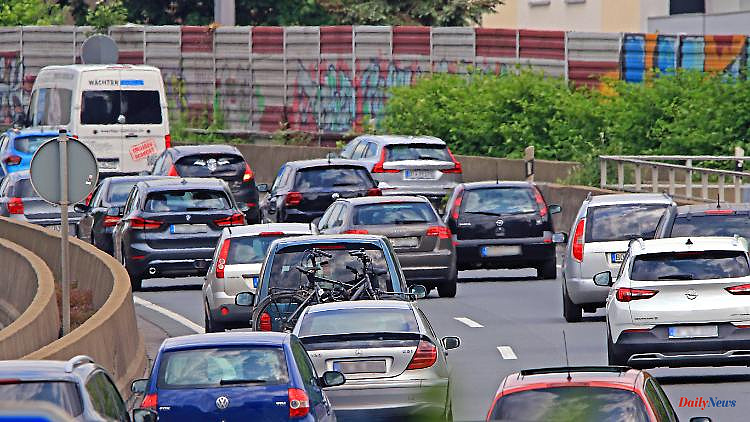How can the European Union free itself from dependence on Russian oil and gas supplies? The EU Commission is presenting a comprehensive package today. Further proposals are coming from the Member States. Luxembourg sees savings potential, especially in car traffic.
Luxembourg's Energy Minister Claude Turmes is calling for an EU-wide speed limit in order to break away from energy imports from Russia. "What we need at EU level is an EU-wide coordinated speed limit and two days of home office per week," said Claude Turmes. Together with car-free weekends in major European cities, this could save 2.5 million barrels of oil. "I urge the Commission not to miss the opportunity to set Europe on this path," said Turmes.
This Wednesday, the EU Commission is presenting a comprehensive plan to supply the EU with long-term energy without fossil fuels from Russia. In addition to higher energy saving targets, the authority also wants more ambition in the expansion of renewable energies, as can be seen from drafts available to the German Press Agency. The texts are subject to change.
For example, 45 percent of the energy in the EU should come from renewable sources by 2030, instead of the previously planned 40 percent. At the same time, it is likely to be proposed to reduce energy consumption by at least 13 percent by the end of the decade, instead of the 9 percent previously planned. There is no explicit mention of a speed limit in the drafts - however, further proposals are to be presented to reduce energy consumption. Overall, according to the drafts, the EU must invest around 195 billion euros by 2027 in order to become independent of Russian energy - in addition to the initiatives already planned under the "Fit for 55" climate package.
Among other things, the number of solar power systems should more than double by 2028 according to the drafts of the EU Commission. For example, the Commission wants all industrial buildings to be fitted with solar cells, with new buildings to follow. In addition, she is expected to present a legislative initiative for shorter approval procedures of up to one year for certain plants.
The Commission is also relying on climate-friendly hydrogen, which is produced from green electricity and can partially replace gas. Among other things, she wants to present specifications for production here. By 2030, 10 million tons of it will be produced in the EU and another 10 million tons will be imported, according to the preliminary documents. The Commission is also counting on new gas suppliers such as the USA. In the event of an emergency that Russia turns off the gas tap, she also wants to propose capping the price of gas across the EU.
According to the draft, the money for implementing the reforms should come from the pot for EU agricultural policy or from the Cohesion Fund for regional development. Additional money could therefore come in through the auctioning of new certificates from emissions trading (ETS). In the system, for example, electricity producers have to buy certificates for the emission of climate-damaging gases.
The total sum is not clear from the drafts. According to EU sources, it could be about 200 billion euros. According to the draft, the allocation of the funds should be organized via the RRF development instrument created in the wake of the Corona crisis. According to MEP Markus Pieper, the package contains more ambitious expansion targets for renewable energy - which is to be welcomed. Elsewhere, improvements have to be made: "Some of the proposals go dangerously wrong, such as with the specifications for hydrogen production," said the CDU politician. These contained unfulfillable specifications for the industry.
Green MP Michael Bloss also reacted positively. "The EU Commission is taking a step towards 100 percent renewable energy". A European solar obligation and the increase in targets for the expansion of renewables are important signs. Bloss, however, criticized the planned financing of the package. Selling an additional million tons of carbon dioxide (CO2) in emissions trading means more CO2 emissions. "Unleashing a carbon storm to fund the package cannot be our goal," Bloss said.
6












